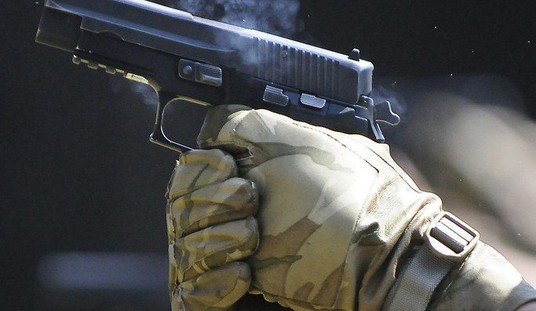A local judge in San Antonio, Texas is using his position on the bench to push for a slate of new gun laws in the Lone Star State, claiming that more gun control can help fix a “systemically flawed” criminal justice system. Is he right, or would his “cure” actually exacerbate the problem?
Judge Nelson Wolff recently penned an open letter to Bexar County residents about the recent death of Damian Lamar Daniels, a 31-year old military veteran who was killed by officers after they responded to a mental health call at Daniels’ home.
Bexar County Sheriff Javier Salazar said deputies had been called several times to the home over the last few days. He said they finally made contact with Daniels on Tuesday and tried to de-escalate the situation for about 30 minutes since they knew he had a weapon.
At one point, a deputy tried to bond with Daniels in an attempt to calm him down, Salazar said. It became apparent that he did not want to follow deputies to get help, and he got aggressive, the sheriff said.
Salazar said a deputy attempted to subdue Daniels with a stun gun, but it did not stop him. He then grabbed the deputy’s stun gun, and another deputy used their stun gun on him to try to get him to let go of it, the sheriff said.
Salazar said Daniels then reached for a weapon he had in a holster around his waistband. Deputies told him to let go of the gun.
Salazar said a deputy then shot Daniels twice in the upper torso when he did not listen to their commands.
According to Judge Wolff, officers shouldn’t have shown up at Daniels’ home to begin with. Instead, the judge says that ” it may have been better to send mental health professionals instead of armed deputies in uniform.” Maybe it would have been, though the sheriff says that deputies did try to de-escalate the situation before Daniels became aggressive with officers.
Wolff goes on to say that the Daniels case shows that the criminal justice system is “systematically flawed to the extent that it fails to administer justice to the poor, the homeless, minorities, and to the mentally ill and drug dependent citizens.” I find it interesting that nowhere in his letter does Wolff talk about whether the criminal justice system fails to administer justice to the victims of violent crime. Instead, the judge proclaims that a more equitable criminal justice system must include several new restrictions on the right to keep and bear arms.
“…the Texas Legislature needs to pass a reasonable gun control law. The legislature should require enhanced background checks, pass red-flag laws, ban sale of high-capacity magazines and close loopholes in protective order laws.”
It’s awfully ironic that one of Wolff’s recommendations is the passage of a red-flag law, which typically involve sending armed police to confiscate legally owned firearms from people who’ve never been accessed by a mental health professional. One of Wolff’s criticisms of the Daniels case is that mental health professionals weren’t involved in the attempt to check up the veteran, and Wolff notes that Daniels had a right to own a firearm. The same is true of the vast majority of red-flag cases, yet Wolff wants to have more police confiscate firearms from people who have neither been accused of a crime or declared mentally incompetent by a medical professional.
As for his support for things like universal background checks and magazine bans, can the judge possibly explain how those laws wouldn’t also be used to target the poor and minorities? It seems to me that if you think the criminal justice system is inherently flawed, one of the best things we can do would be to reduce the number of criminal offenses on the books, not add to them.
Of course Wolff is a longtime Democrat, serving in the state legislature in the 1970s and as San Antonio’s mayor in the mid-1990s. Still, as judge he’s supposed to put partisanship aside in favor of administering justice, not toe the party line by embracing an anti-gun agenda that would likely lead to more lower-income Texans and racial minorities ending up behind bars for non-violent, possessory gun offenses.








Join the conversation as a VIP Member